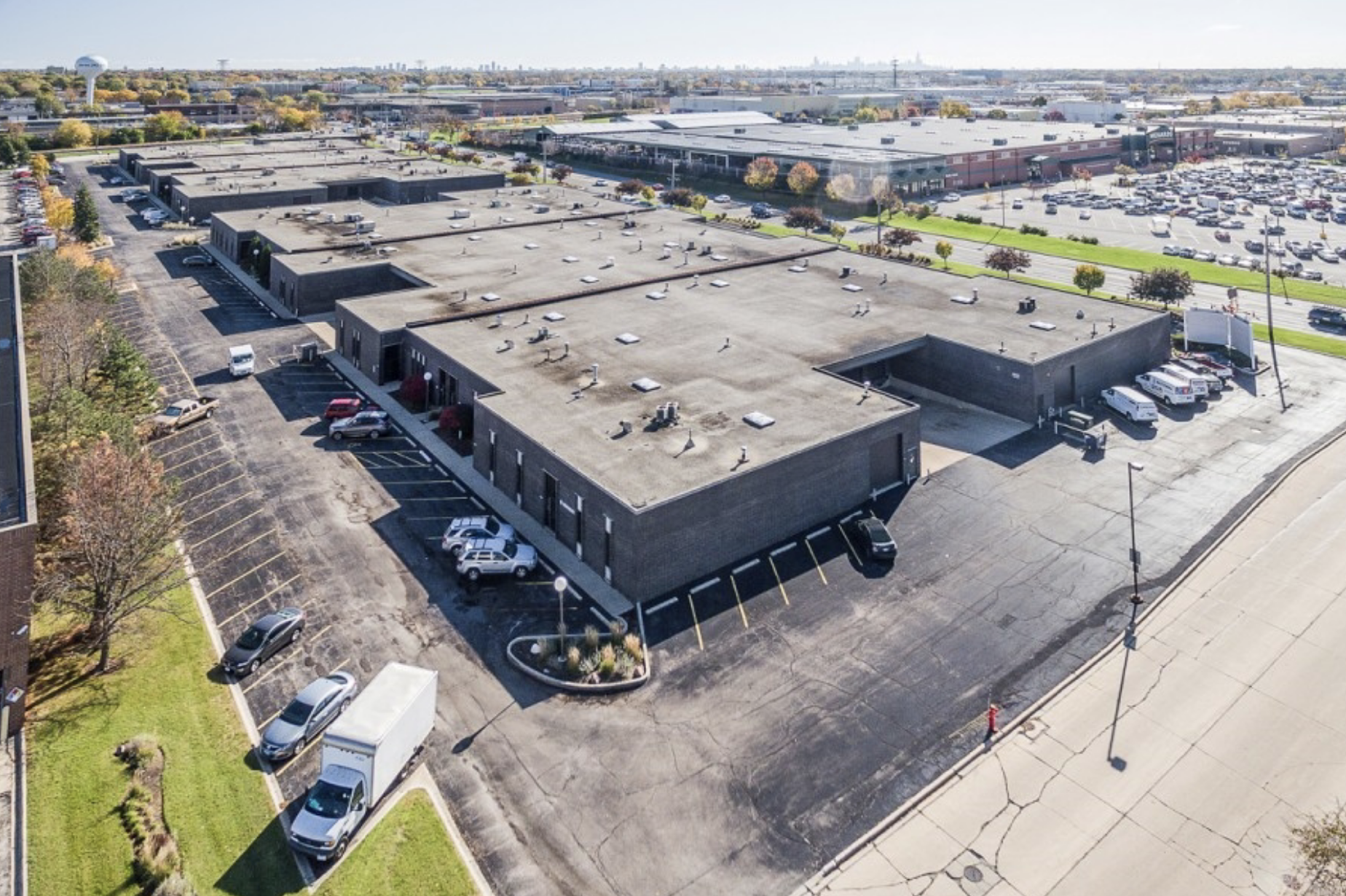Warehouse Feeding Frenzy Pushes Some Investors to Older,Smaller Buildings
Case in Point: Unilev Capital Paid $32.5 Million for a Six-Building, Multi-Tenant Portfolio Near Chicago
As record amounts of money ow into massive warehouses leased to name-brand tenants such as online retailer Amazon, smaller and older industrial buildings also are attracting attention from investors looking to capitalize on a shortage of space. In one such deal, Unilev Capital said it paid in recent weeks $32.5 million for a portfolio of small warehouses with multiple tenants in Morton Grove, Illinois, near Chicago. The six-building,358,616-square-foot deal extends an industrial buying spree by Beverly Hills, California-based Unilev, which had, until the pandemic, focused on properties such as ofce and retail buildings.
It follows an unprecedented year of industrial sales volume locally and nationally, with no signs of slowing in 2022. There was a record-shattering $2 billion worth of sales in the Chicago area last year, contributing to an all-time high $124 billion in deals nationally, according to CoStar data. Supply-chain breakdowns and the rising adoption of online purchases during the health crisis have caused demand to soar, leading many institutional investors to pour more dollars into industrial real estate. Capitalization rates, or projected annual rates of return, have fallen in the United States to 4.6%, from 5.8% in 2019 before the pandemic changed market dynamics, CoStar data shows. Falling cap rates are a sign of intensifying competition to buy properties, which pushes up prices and lowers the percentage return for winning bidders. “While there is still signicant competition [to buy buildings], it’s less than Class A product, and the type of capital chasing these deals tends to be less institutional, for now — although we have seen institutional investors coming into the market,” Ian Konowitch, Unilev’s chief investment officer, told CoStar News.
Single-Building Sales Already in 2022, large single-building sales have included Avison Young Investment Management’s $96.75 million purchase of a soon-to open Lion Electric vehicle factory at 3835 Youngs Road in Joliet, Illinois, and Realterm US’s $68 million purchase of a warehouse leased to three tenants at 703-709 W. Algonquin Road in Arlington Heights, Illinois. Even with the feeding frenzy for big, new facilities, Unilev is betting good returns can be found in older, smaller buildings with tenants that tend to be on shorter-term leases for less than 10,000 square feet.
The Morton Grove buildings are fully leased, Konowitch said. They are at 6201-6245 Park Ave., 8200 and 8210-8270 Lehigh Ave., and 6160-6240, 6200-6288 and 6300-6380 Oakton St. in a suburb about 14 miles northwest of Chicago’s Loop business district.The seller was Chicago-based JDI Realty, which bought the portfolio out of nancial distress from a special servicer for $18.4 million in December 2020, according to CoStar data, before boosting the buildings’ values by signing new leases. “Now that they’ve stabilized it, we think that’s our opportunity to see 20 to 30% upside on rents,” said Konowitch, whose company is led by Raymond Levy, who co-founded the rm in 1993. In just over a half-year, Unilev said it has bought about $155 million of industrial buildings in Illinois, California and Nevada, totaling more than 1.2 million square feet of space. Most of that space is in the Chicago area, with plans to keep moving into other areas, including the Sun Belt, Konowitch said.
Joint Ventures
Many of the deals have been joint ventures with Austin, Texas-based Palladius Capital Management, spreading the risk and returns. Unilev’s focus has been on smaller, shallow-bay buildings leased to multiple tenants, typically with less than ve years remaining on their leases. Although the buildings are too old or small for many tenants, they’re being acquired well below replacement cost and in areas where there’s relatively little supply, limiting the risk of tenants moving, the rm said. Because most leases are small and for rents well below others in the market, tenants are able to pay increased rents with little increase to their overall business costs, Konowitch said. For example, a $1-per-square-foot increase on a 3,000-square-foot space means just $3,000 more per year in costs for a tenant that values the location. Across an entire portfolio, though, it’s a meaningful increase in prots for the landlord, he said. “It’s a contrarian approach to some people chasing bulk distribution product,” said Peter Berges, vice president of investments at Unilev. “Generally there’s not enough land in the locations where we’re buying and construction costs are so high that while demand continues to increase, the supply is staying stagnant in the small-tenant space.”
Source: Ryan Ori - CoStar News

